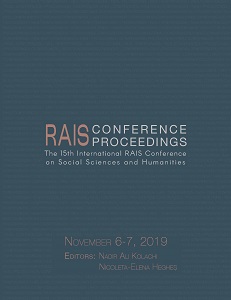International Events and Grand Strategy Adjustment after the Cold War: Examining Chinese Grand Strategy Using a Neoclassical Realist Model
International Events and Grand Strategy Adjustment after the Cold War: Examining Chinese Grand Strategy Using a Neoclassical Realist Model
Author(s): Leo S. F. Lin
Subject(s): Governance, Government/Political systems, Politics and Identity
Published by: Scientia Moralitas Research Institute
Keywords: Chinese grand strategy; neoclassical realism; foreign policy;
Summary/Abstract: There is a two-fold purpose of this paper. First, the author attempts to test whether the Type III of the neoclassical realism model developed by Ripsman et al. (2016) has better explanatory power on China’s grand strategy adjustment after the Cold War era than other models. Second, the author examines how international events have impacted Chinese grand strategy adjustment in the everchanging systematic dynamics. The author argues that Type III of the neoclassical realism model provides a suitable model to explain a state’s grand strategy adjustment, as this model can explain medium to longer-term dependent variables. According to the model, unit-level factors, such as leader images and strategic culture, have impacted the grand strategy decision-making and its foreign policy implementation, which resulted in the grand strategy adjustment over a long period. In terms of the case study, the author succinctly traces and examines how international events have impacted China’s grand strategy, such as the dissolution of Soviet Union (1989), 9/11 terrorist attacks (2001), and the Global financial crisis (2008). This paper contributes to the study of Chinese grand strategy.
Book: Proceedings of the 15th International RAIS Conference on Social Sciences and Humanities
- Page Range: 208-215
- Page Count: 8
- Publication Year: 2019
- Language: English
- Content File-PDF

